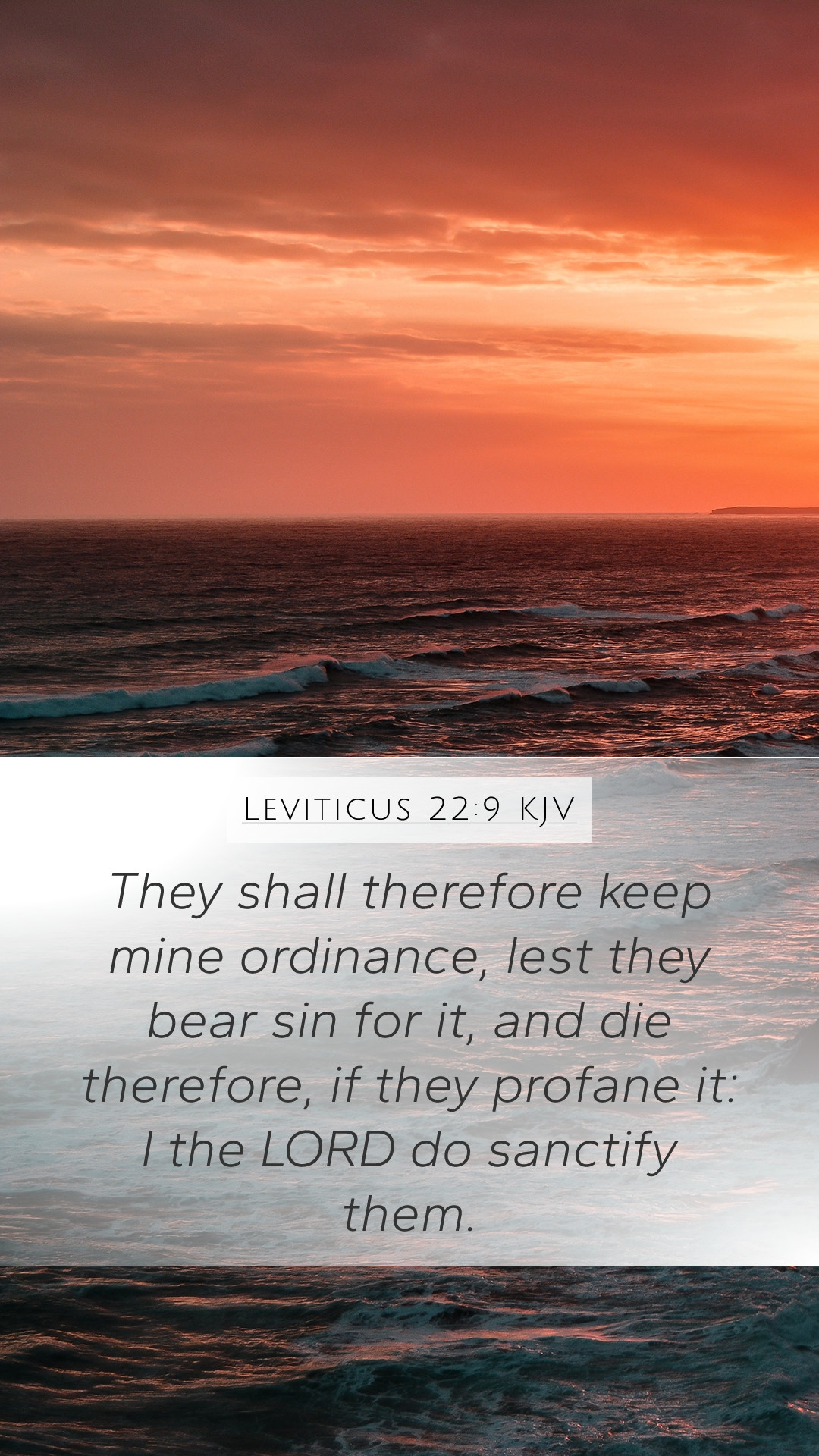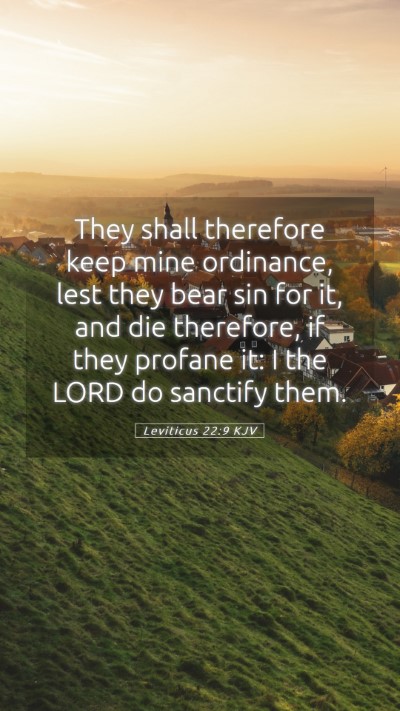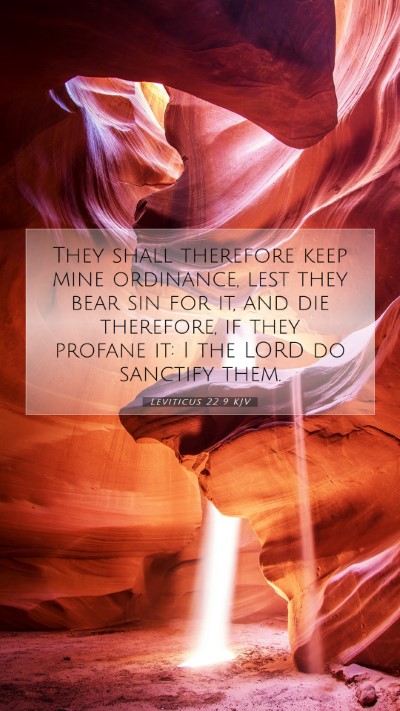Understanding Leviticus 22:9 - A Comprehensive Bible Verse Commentary
Leviticus 22:9 states, "They shall therefore keep My ordinance, lest they bear sin for it and die thereby if they profane it: I, the Lord, sanctify them." This verse establishes the importance of obeying God’s commandments regarding holiness and the significance of the priestly role in maintaining proper worship practices. Below, we delve into a detailed analysis and interpretation of this scripture, providing insights from esteemed public domain commentaries.
Summary of Key Insights
- Preservation of Holiness: The priesthood is tasked with maintaining the sanctity of their offerings and rituals to avoid sin and potential divine judgment (Matthew Henry).
- Consequences of Profanity: Profaning God's ordinances not only leads to sin but also incurs severe penalties, emphasizing God’s holiness and justice (Albert Barnes).
- Divine Sanctification: The phrase "I, the Lord, sanctify them" highlights God's exclusive role in consecrating His people, reflecting His sovereignty and grace (Adam Clarke).
Bible Verse Meaning: In-depth Analysis
Leviticus 22:9 serves as a pivotal verse in the Book of Leviticus, which focuses on rituals, laws, and the attributes of holiness associated with worship. The context of this command is significant, particularly in the broader spectrum of Israelite worship practices.
1. The Role of the Priests
Priests held a vital function in the religious life of Israel. Their duties included offering sacrifices and rituals deemed essential for communal and individual atonement.
The directive to "keep My ordinance" underscores the weight of their responsibility to follow God’s laws meticulously. Failing to maintain these ordinances could result in severe consequences including sin and spiritual death, as indicated in the verse. This serves as a reminder that those who lead others in worship must first uphold their own spiritual integrity.
2. The Importance of Holiness
The holiness of God is a recurring theme throughout the scriptures. In Leviticus 22:9, the call to holiness is articulated as a non-negotiable attribute of God’s nature.
The consequences of his people profaning His commands demonstrate that God’s holiness cannot be compromised. Such disregard would not only corrupt their offerings but would also lead to divine judgment. This reflects the principle found in other sections of the Bible, like Matthew 5:48, where believers are called to be perfect as God is perfect.
3. The Nature of Sin and Atonement
Leviticus 22:9 emphasizes the seriousness with which God views sin, particularly as it pertains to worship and offerings. Understanding this helps frame our perception of atonement and the need to approach God with reverence and purity. This aligns with teachings found in Hebrews 12:14, where righteousness and holiness are essential for seeing the Lord.
4. Divine Authority in Sanctification
When God declares "I, the Lord, sanctify them," it encapsulates His authority as the one who sets apart His people for His purpose. This serves to combat the idea that sanctification can be achieved through human efforts alone. Such a notion is reinforced in other scriptural contexts, like 1 Peter 2:9, where believers are referred to as a chosen generation, called to proclaim His excellence.
Application of Leviticus 22:9 in Daily Life
Understanding this verse and its context allows believers to reflect on their own lives in relation to God's standards. It encourages an examination of personal and communal worship practices and a commitment to adhere to God’s commands diligently.
- Worship Preparedness: Approach worship with a heart of reverence, ensuring that one’s life reflects God’s holiness.
- Community Responsibility: Take personal responsibility for the communal aspects of worship; understand that individual actions can have wider spiritual ramifications.
- Continuous Reflection: Regularly assess one’s alignment with God’s expectations, seeking to uphold His ordinance in both public and private life.
Cross References
- Exodus 19:6: A nation of priests and a holy nation.
- Nahum 1:15: God’s command to holiness and reverence towards Him.
- 1 Peter 1:16: For it is written, "Be holy, for I am holy."
Conclusion
Leviticus 22:9 encapsulates foundational truths regarding the priestly duties, the nature of God’s holiness, and the serious implications of sin within the context of worship. Through the lens of this verse, believers are called to a deeper understanding of both God's character and their own responsibilities in honoring Him. As you reflect on this scripture, consider how these insights can transform your personal Bible study practices and daily living.


